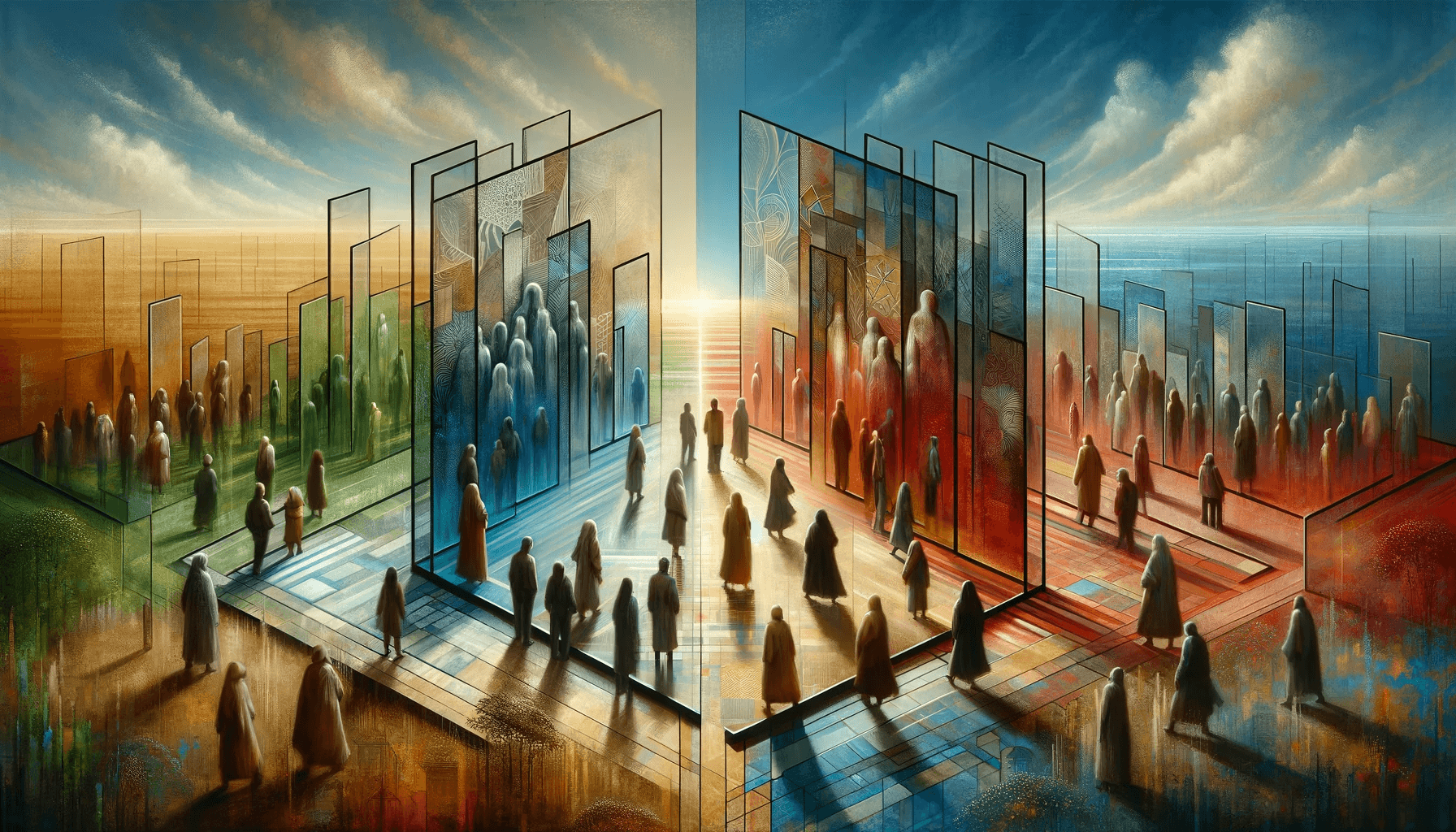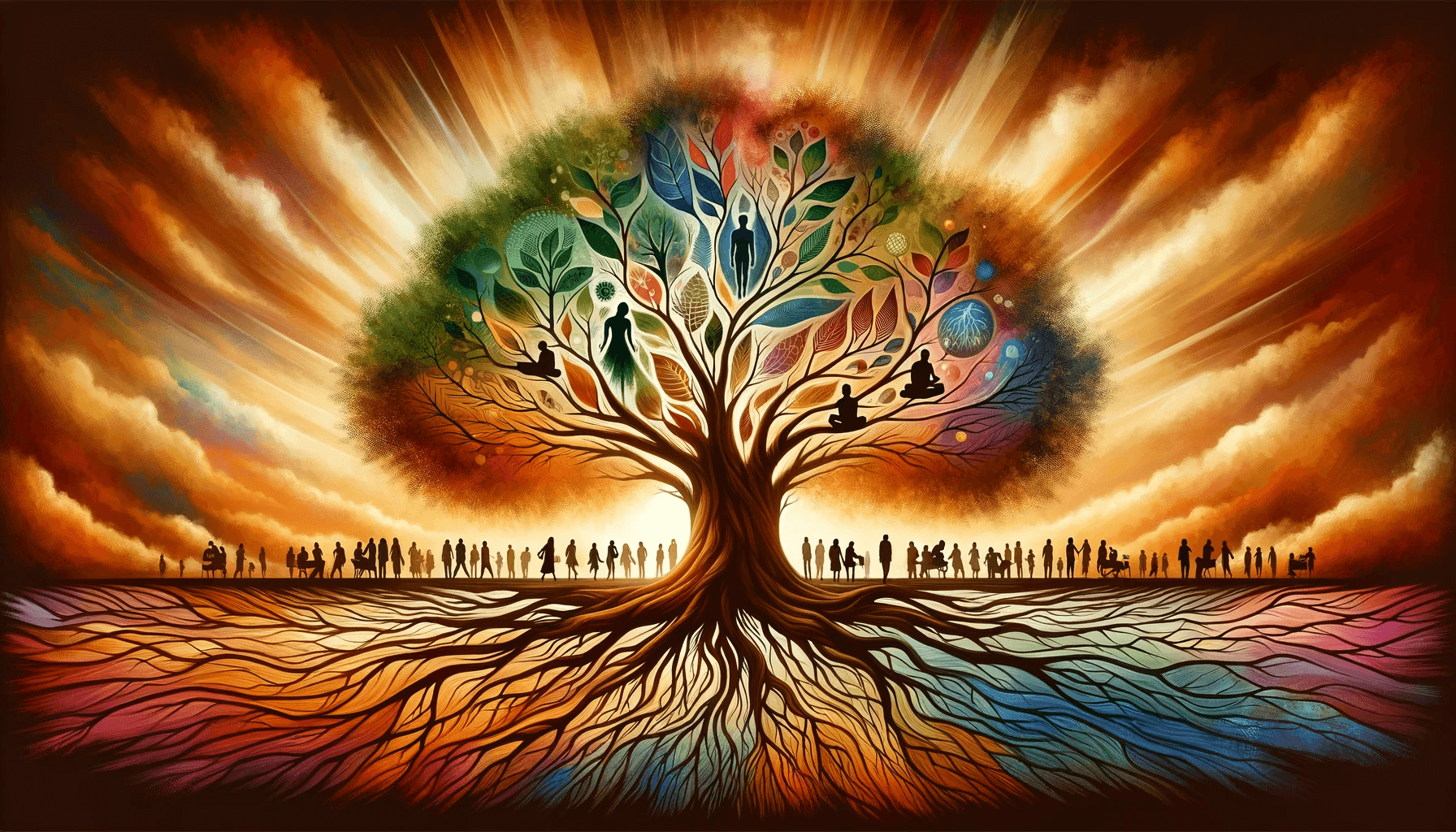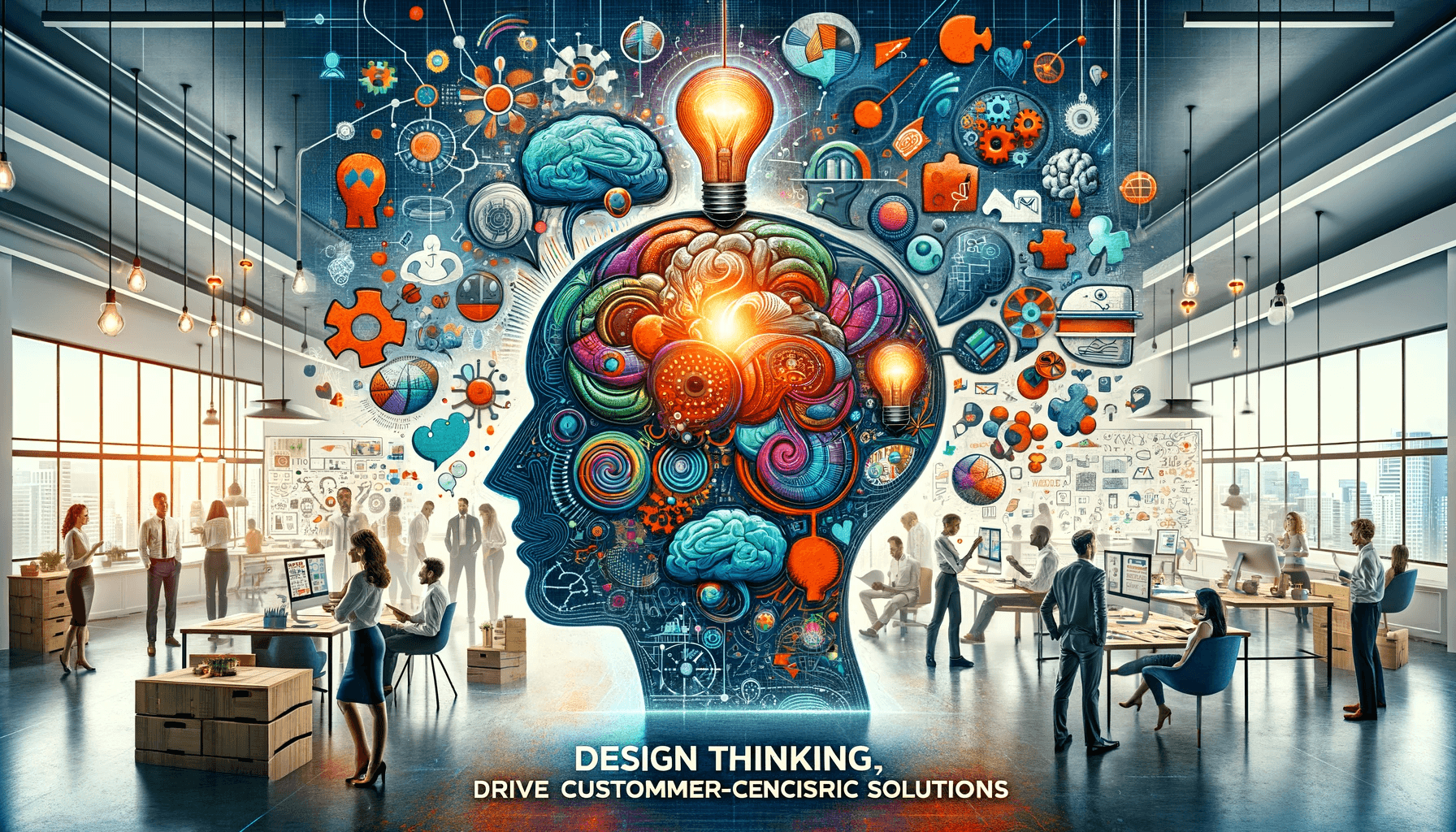Sponsor Thought Elevators
Table of Contents
Defining prejudice: Understanding the concept
Prejudice, a deeply ingrained aspect of human nature, has plagued societies throughout history. It is a preconceived notion or judgment about an individual or a group based on their perceived characteristics, such as race, gender, religion, or nationality. Prejudice often leads to discrimination, exclusion, and marginalization, perpetuating inequality and hindering progress toward unity and harmony in a diverse world.
At its core, prejudice stems from ignorance and fear of the unfamiliar. It is an irrational response that disregards the unique qualities and shared humanity that connect us all. Prejudice can manifest in various forms, ranging from subtle biases to overt acts of hatred. By understanding the concept of prejudice, we can begin to dismantle its destructive influence and work towards a more inclusive society.
The history of prejudice: Tracing its roots
Prejudice is not a new phenomenon; it has existed for centuries and is deeply rooted in human societies. Throughout history, individuals and communities have been subjected to prejudice based on factors such as race, religion, and social class. From the caste system in ancient India to the transatlantic slave trade, prejudice has perpetuated inequality and social divisions.
The long history of prejudice highlights the deep-seated nature of this issue. Acknowledging the historical context to understand and address the roots of prejudice is crucial. By examining the historical origins of prejudice, we can gain insight into how it has shaped our present-day society and begin dismantling its harmful effects.
Forms of prejudice: Exploring different types
Prejudice can take many forms, often intersecting with various aspects of an individual’s identity. One of the most common forms is racial prejudice, which involves harboring negative attitudes or beliefs towards individuals of a particular race or ethnicity. Gender prejudice, on the other hand, requires discrimination based on an individual’s gender or gender identity. Religious prejudice targets individuals based on their religious beliefs, while socioeconomic prejudice targets those of a lower social class.
It is important to recognize that prejudice is not limited to these categories alone; it can manifest in countless ways. Prejudice can also intersect with multiple forms of discrimination, exacerbating the marginalization experienced by specific individuals or groups. By acknowledging the different types of prejudice, we can better understand the complexity of this issue and work towards dismantling it in all its forms.
Impact of prejudice on individuals and communities
The impact of prejudice extends far beyond the individuals who experience it. Prejudice can have profound psychological, emotional, and social consequences for individuals and communities. Those who are subjected to prejudice may experience lower self-esteem, increased stress, and a sense of isolation. They may face barriers in accessing education, employment, and healthcare, limiting their personal and professional growth opportunities.
On a larger scale, prejudice can fracture communities and perpetuate social divisions. It creates an “us versus them” mentality, eroding trust and cooperation among diverse groups. In turn, this hinders societal progress and unity. Recognizing the wide-ranging impact of prejudice and working collectively to create an inclusive and equitable society is crucial.
Prejudice in the workplace: Challenges and solutions
The workplace is not immune to the influence of prejudice. Discrimination based on race, gender, age, or other factors can hinder career advancement and create a hostile work environment. Prejudice in the workplace not only affects individuals but also undermines productivity and innovation. It is essential for organizations to actively address and eliminate prejudice to foster a diverse and inclusive work environment.
To combat workplace prejudice, organizations can implement diversity and inclusion initiatives. These initiatives should include comprehensive training programs to raise awareness about unconscious biases and promote cultural sensitivity. Additionally, creating diverse hiring practices and inclusive policies can help mitigate the impact of prejudice and ensure equal opportunities for all employees. By addressing prejudice in the workplace, organizations can harness the full potential of their diverse workforce and foster a culture of inclusivity.
Overcoming prejudice: Strategies for promoting inclusivity
Overcoming prejudice requires a collective effort from individuals, communities, and institutions. It necessitates a shift in mindset and a commitment to promoting inclusivity. One effective strategy is to challenge our own biases and assumptions actively. By examining our beliefs and questioning the origins of our prejudices, we can dismantle them and foster a more inclusive perspective.
Education and awareness play a crucial role in combating prejudice. Schools and educational institutions should incorporate comprehensive diversity and inclusion curricula to promote understanding and empathy. Educating future generations about the harmful effects of prejudice and the value of diversity can lay the foundation for a more inclusive society.
Also, fostering meaningful interactions and dialogue among diverse groups can bridge divides and break stereotypes. Engaging in open-minded conversations, participating in community events, and supporting organizations that promote inclusivity can all contribute to overcoming prejudice. By actively seeking diverse perspectives and experiences, we can challenge our biases and foster a more inclusive society.
Education and awareness: Combating prejudice through knowledge
Education and awareness are powerful tools in combating prejudice. We can challenge stereotypes, debunk myths, and promote understanding through knowledge. By integrating inclusivity and diversity into educational curricula at all levels, we can equip individuals with the necessary tools to recognize and reject prejudice.
Educational institutions should prioritize teaching tolerance, empathy, and critical thinking skills. By exposing students to diverse perspectives and experiences, they can develop a broader worldview and become agents of change. It is essential to create safe spaces for open discussions where students are encouraged to question their biases and engage in respectful dialogue.
Beyond the classroom, media literacy is crucial in combating prejudice. Media outlets have a responsibility to represent diverse communities accurately and responsibly. By promoting diverse voices, challenging stereotypes, and showcasing the richness of different cultures, the media can play a significant role in breaking down prejudice and fostering unity.
Prejudice in the media: Media’s role in perpetuating stereotypes
The media has a powerful influence on shaping public opinion and attitudes. Unfortunately, media outlets have often perpetuated stereotypes and reinforced prejudices. From biased news reporting to the underrepresentation or misrepresentation of marginalized communities, the media has contributed to the perpetuation of prejudice.
To combat prejudice in the media, it is essential to promote media literacy and critical consumption. Individuals should actively question the narratives presented by the media, seek out diverse sources of information, and engage with a wide range of perspectives. Additionally, media organizations should prioritize diversity and inclusivity in their hiring practices and storytelling. By giving voice to underrepresented communities and challenging stereotypes, the media can contribute to dismantling prejudice and promoting a more inclusive society.
Prejudice in politics: Examining the influence on policymaking
Politics plays a significant role in shaping societal attitudes and policies. However, prejudice can often infiltrate political discourse and policymaking, perpetuating inequality and exclusion. Prejudiced views can influence political agendas, leading to discriminatory policies and practices that disproportionately affect marginalized communities.
To address prejudice in politics, individuals must actively engage in the political process. Voting for inclusive candidates, advocating for policies that promote equality, and holding elected officials accountable can all contribute to dismantling prejudice. Additionally, political leaders and policymakers are responsible for prioritizing diversity and inclusivity in their decision-making processes. Politicians can work towards dismantling prejudice and creating policies that promote unity and progress by actively seeking out diverse perspectives and engaging in dialogue with marginalized communities.
Creating a prejudice-free Society: Steps Towards Progress and unity
Creating a society free from prejudice requires a multifaceted approach. Individuals, communities, institutions, and governments must work together towards a common goal.
Some key steps towards progress and unity include:
- Promoting inclusivity: Embrace diversity and create spaces that value and celebrate differences.
- Education and awareness: Foster knowledge and understanding through comprehensive diversity and inclusion curricula.
- Challenging biases: Actively question and challenge our own biases and assumptions.
- Meaningful dialogue: Engage in open-minded conversations that promote empathy and understanding.
- Media representation: Advocate for diverse media representation that challenges stereotypes and promotes inclusivity.
- Political engagement: Participate in the political process and advocate for policies that promote equality and inclusivity.
By taking these steps, we can work towards dismantling prejudice and creating a society that values and respects the inherent worth of every individual.
Conclusion: The importance of addressing prejudice for a better future
Prejudice remains a silent barrier to progress and unity in our diverse world. It hinders social cohesion, perpetuates inequality, and denies individuals and communities the opportunity to thrive. By understanding the concept of prejudice, tracing its historical roots, and exploring its different forms, we can dismantle its destructive influence.
Overcoming prejudice requires a collective effort involving education, awareness, and meaningful dialogue. We can work toward a future free from prejudice by challenging our biases, promoting inclusivity, and advocating for policies prioritizing equality. Only by addressing prejudice head-on can we foster a society that embraces diversity, promotes unity, and paves the way for a better and more inclusive future.
Join the movement towards a prejudice-free society. Together, we can create a world that celebrates diversity and promotes unity.





Leave a Reply